Having grown up amidst continuous news headlines featuring the Israel-Palestine conflict, I rarely hear “Israel” without thinking of Palestine. So of course I wasn’t going to spend two weeks in Israel without making a trip to Palestine (or the West Bank if you prefer – I’m not trying to get political).
When planning our trip to the West Bank, Danielle and I of course first looked to Couchsurfing – I mean, what better way to get a quick feel for a new place than staying with a local?
Mo quickly accepted our request, and as he lives in Hebron, we decided to make it our first stop. (Mo loves receiving guests, and gave us permission to link to his account. If you’re planning a trip to Hebron, be sure to get in touch with him — he’s awesome).
We left from Tel Aviv, and getting there was surprisingly easy!
Getting to Hebron:
1. Take an Egged bus to Jerusalem
2. Exit the bus station and walk straight ahead to the tram. Cross the tracks and take the tram (₪7) to Damascus Gate.
3. Once at Damascus Gate look for the busses with Arabic on the sides. Take a bus to Bethlehem (₪9).
4. Once the bus lets you off at the last stop ignore the taxi drivers and walk straight ahead to the shared yellow vans headed to Hebron (₪9).
5. In Hebron, you can take a shared taxi (which looks the same as a regular taxi) anywhere around the city center for ₪2.5.
The West Bank is divided into three different zones. Zone A is under total Palestinian control. Israelis are barred by law from entering.
Zone B is controlled by the Palestinian Authority and policed by the Israeli military.
Zone C is controlled by the Israeli government and policed by the Israeli military.
You can imagine that this system of governance leads to many issues. It’s a weird phenomenon, and one can pass through multiple zones in a single city or stretch of road.
I immediately liked Hebron. It has a distinctly Arab feel, there always seemed to be people socializing on the streets regardless of the time of day, and it makes a great base for exploring the West Bank.
Our first day Danielle and I spent exploring Bethlehem, which is only a 45-minute drive away by mini bus (₪9).
Not going to lie, I was pretty excited to see Jesus’ birthplace. As in, I may have stood patiently in line among many devotees, anxiously waiting to kiss it.
The highlight of our trip to Bethlehem was (I know you guys know I’m going to say something about food) lunch at Hosh Jasmin, an organic farm in the neighborhood of Beit Jala. A little oasis with a great view, delicious homemade food and the chance to try Palestinian brewed Taybeh beer, it’s definitely worth a stop. They also offer camping. (We didn’t have time, but it is possible to visit the Taybeh brewery or attend their Oktoberfest celebration.)
The following day we headed to Old Hebron, which started with a walk through the bustling market where we tried hard to avoid the many tour guides offering their services. Once we passed through two metal gates and answered the questions of an Israeli soldier, we were officially in Old Hebron.
The area is visibly divided into two sections, though not quite as much as the first time Danielle visited, when there was a literal concrete barrier in the road; Jews on one side, Arabs on the other. This barrier still exists though, especially at the Tomb of the Patriarchs, half of which is in a mosque, the other half in a synagogue.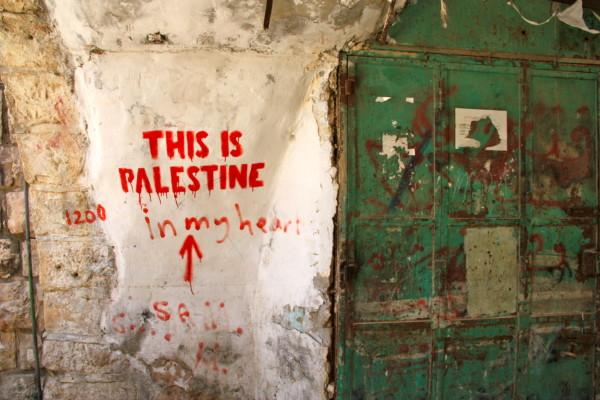
After visiting the tombs we wandered through the Jewish area of Hebron. Crossing the barrier back into Zone C felt like entering a new country, leaving behind the Arab market for a green park filled with school children.
We then returned to Mo’s apartment, which is in the new part of Hebron (Zone A). While Old Hebron is incredibly interesting and an obvious tourist destination, we really liked hanging out in New Hebron, which felt much like any other Arab city.
As far as what we did at Mo’s apartment goes, there was definitely a lot of food, maybe some singing, and quite possibly a dance off. What I’m trying to say is Mo is the very coolest, and my time in Hebron would not have been half as wonderful without his amazing hospitality!
Our main takeaway from talking with Mo, both Jewish and Arab friends in Israel, and a Jewish settler was that the situation in Palestine is far from encouraging and might just always remain a bit of a mess.
This post was written together with Danielle and also appears on her blog The Roaming Coconut.
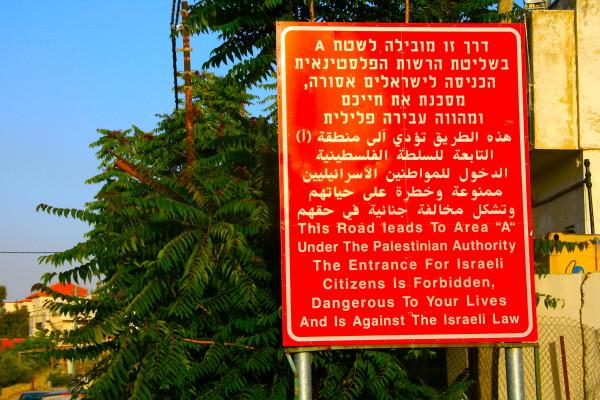
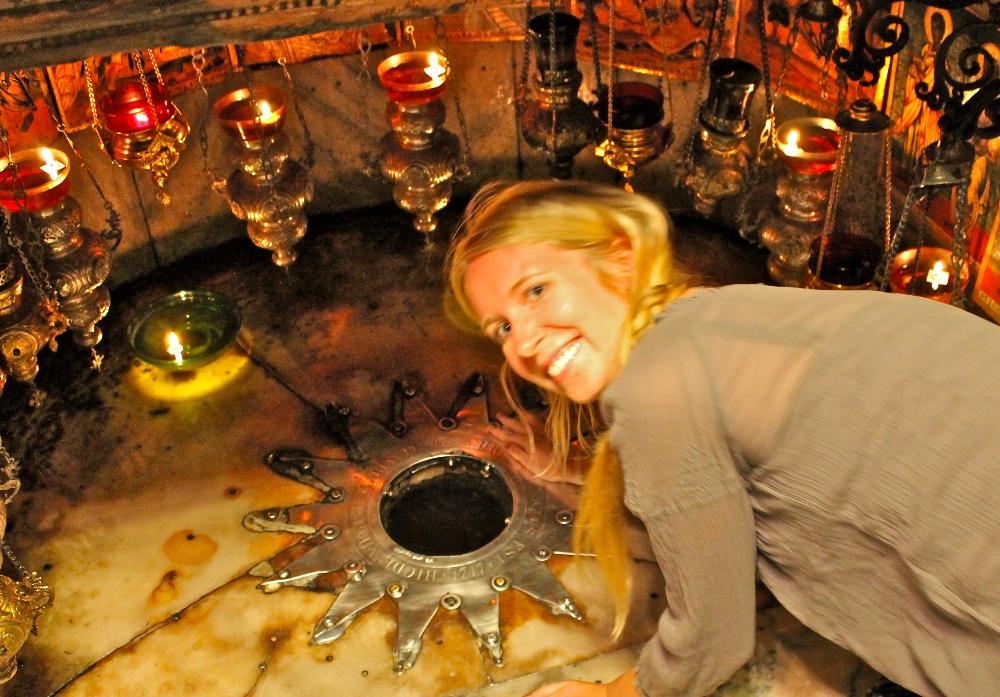

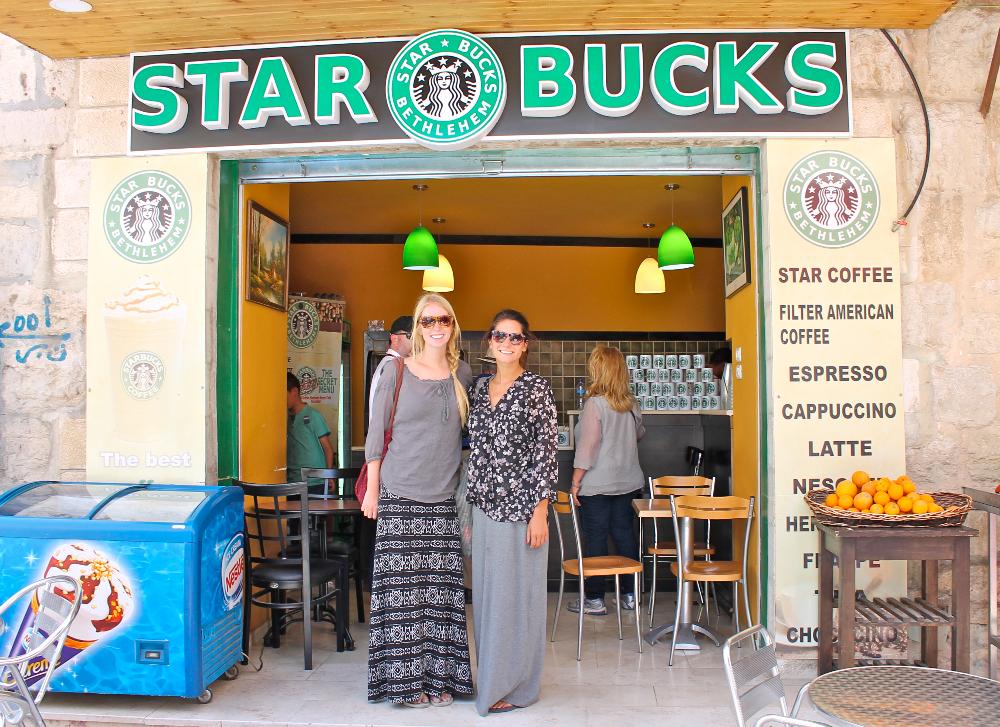
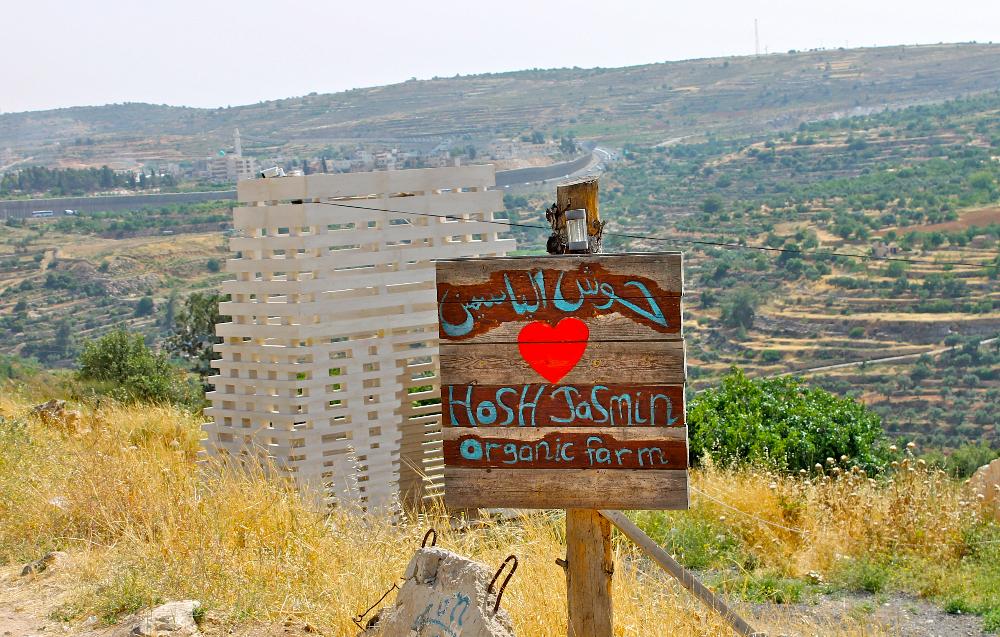
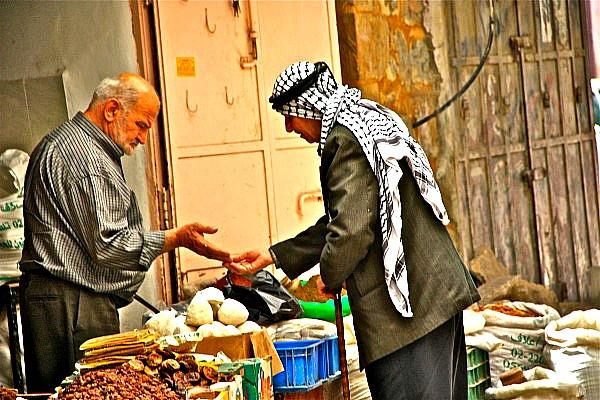
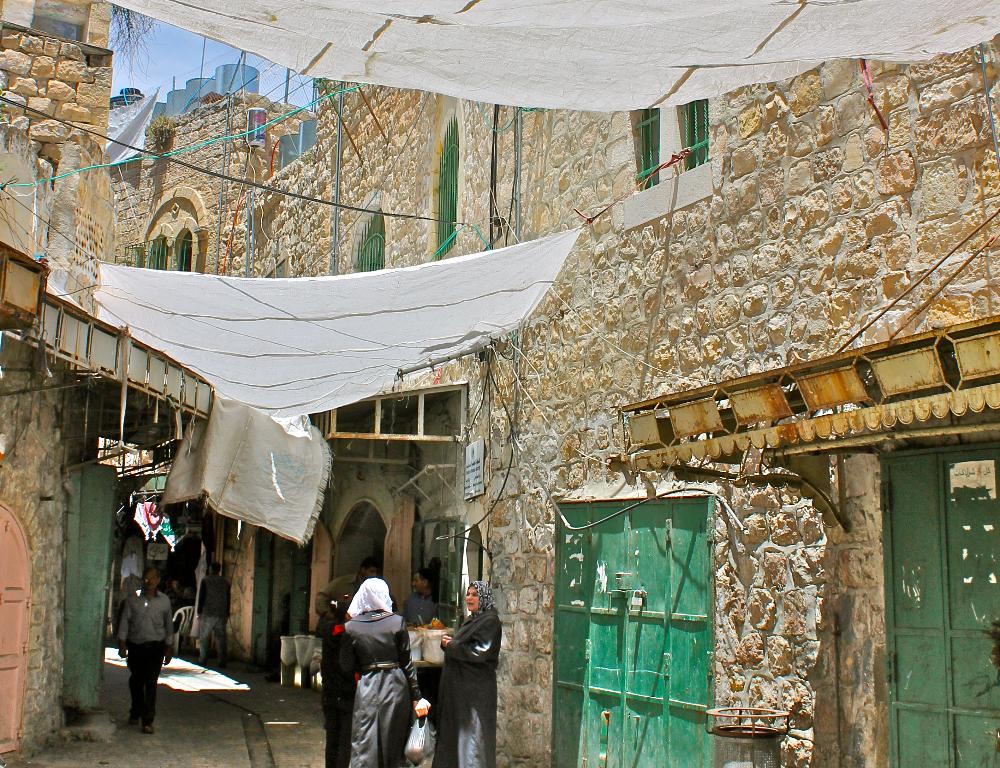
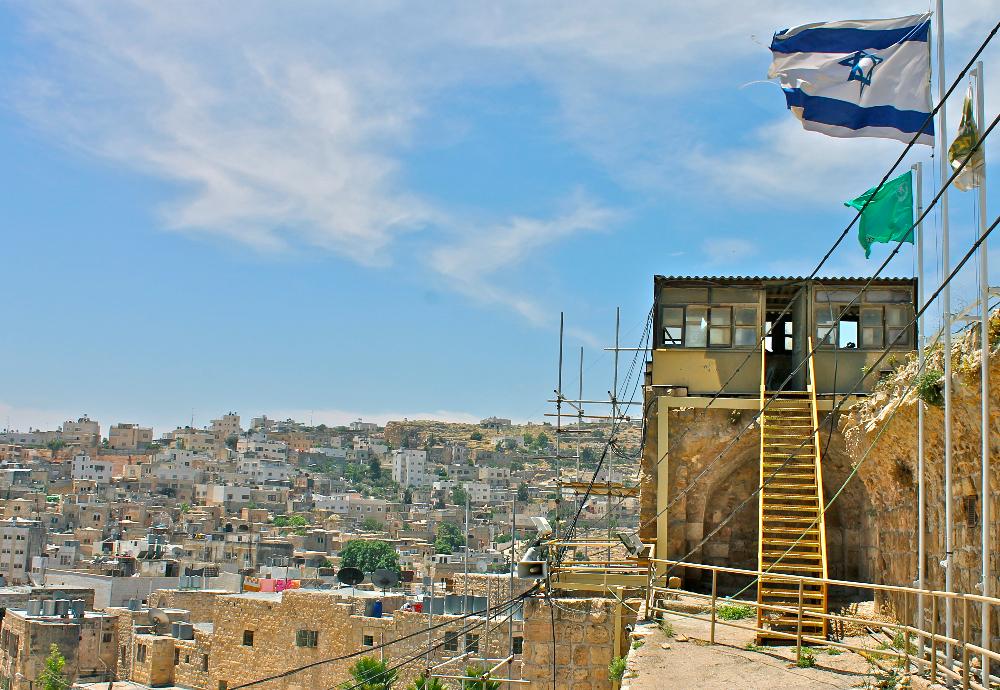
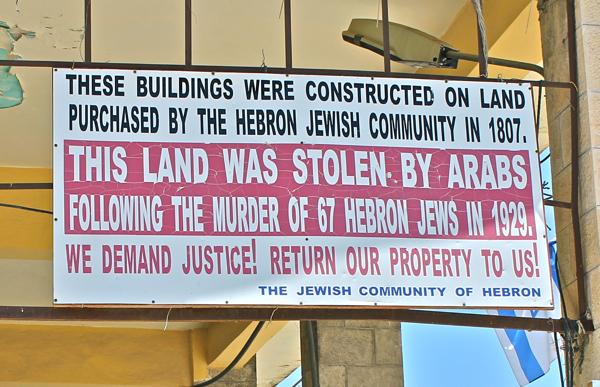
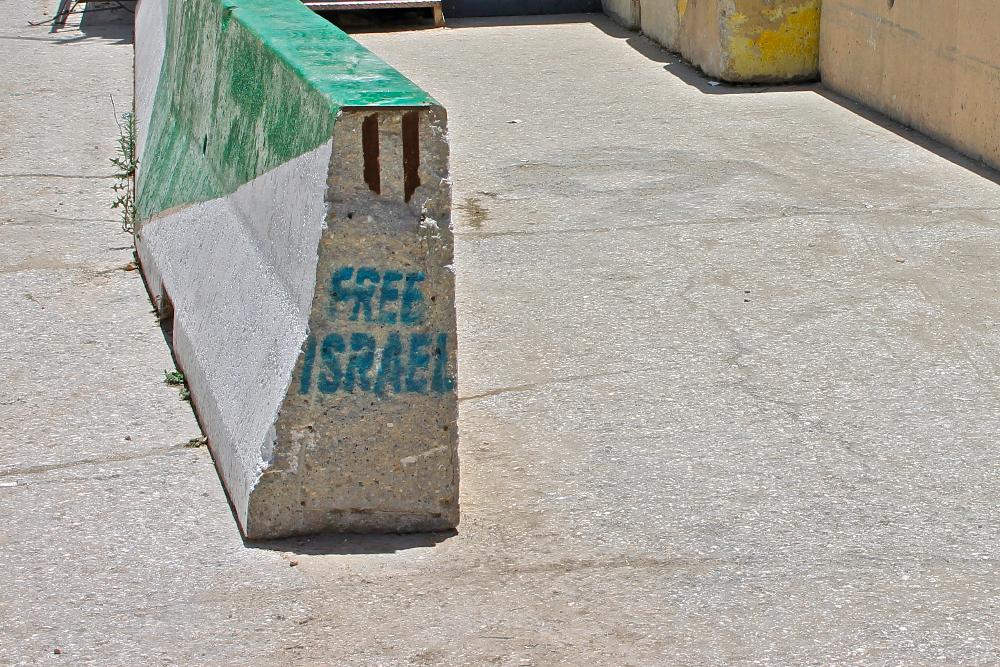
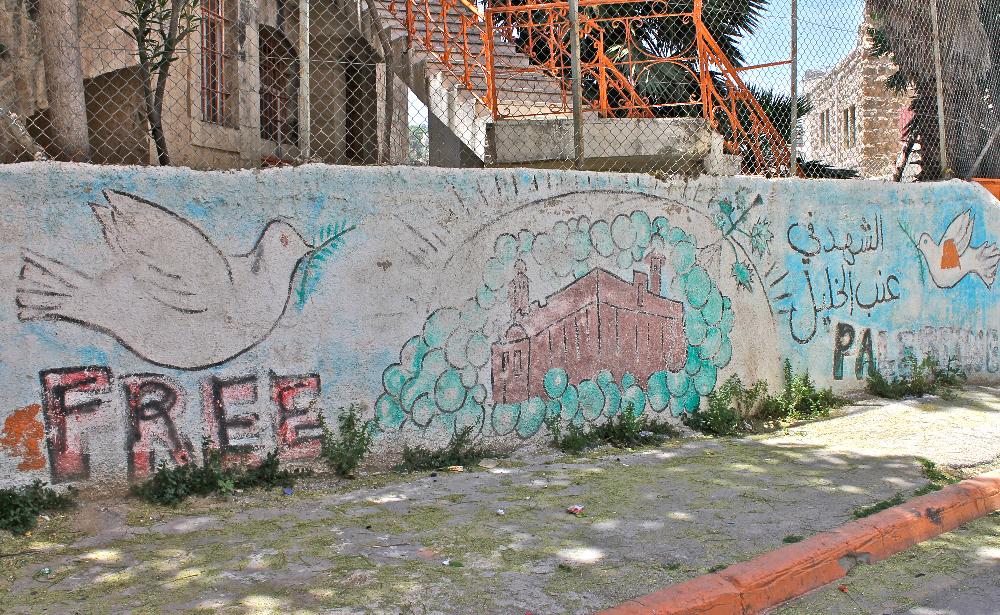


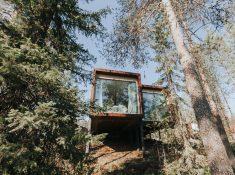

Cyrus says
When in Hebron you should have gone on the “Breaking the Silence” tour. It is apparently shocking. I know you stated you’re not there for politics, but one shouldn’t just go to Hebron without going on such tours to understand what state the city and its people are living in.
Silvia says
I just looked up the tour and it sounds really interesting. We did talk to some Israeli soldiers in Hebron, asking them how they felt about life there, though most just gave a vague answer of “I’m proud to be here because I love Israel.”
And I might have been unclear in the post – I didn’t want to get political in this blog post not because I don’t have interest or opinions about the situation but because I realize a lot of people might not share those opinions, which I understand. But in reality most of my time in Palestine was spent talking to people living there about politics.
Jeff G. says
Since you have been to more countries in the Middle East than most CNN journalists, I am wondering if you have ever experienced “Qwat” or seen it used over there. I live in the Arabic capital of the USA, well within 25 miles of it, and it is quite common here. In case you are not familiar with Qwat, it is a plant that is chewed for the “medicinal” properties if you can call them that. Either way, cool blog you have here. Stay safe in your travels! (amidst all the western misconceptions)
Silvia says
Not sure I would have recognized Qwat if I had seen it! Reminds me of the betel nut that Burmese love to chew – which I have tried! When a girl on a bus took some out of her mouth and shoved it into mine to try. So sweet, haha (the girl, not the betel nut). Thanks for stopping by!
Lain Kennedy says
Hi Sylvia,
You have my respect for traveling places most of us would not.
I was wondering if you are familiar with Dorian Paskowitz? At a couple of points, during his lifetime, he brought surfing (as in the ocean waves) to Israel and Palestine.
There are surfers and surfing in both Palestine and Israel, yet, due to the political mess, travel and surfing in Palestine is not exactly a road well traveled for an American such as myself. This is why I write!
I was wondering is you could either point me in a direction to find out more about the possibility of traveling to Palestine to stay and surf. I would not be going to travel as much as surfing the area, which I know does not have the greatest waves much of the year.
Your help would be much appreciated.
Thank you,
Lain Kennedy
Silvia says
Hi Lain,
I’m afraid I don’t know anything about surfing in Palestine, as I’ve only Couchsurfed there! But it sounds like an exciting adventure! I did love visiting Hebron and Couchsurfing, so if you want to spend some time in Palestine I can definitely recommend that!
Heidi says
Hi Silvia!
I was looking for travel tips in Palestine and ran into your blog. I’ll be traveling to Israel soon and absolutely want to visit the West Bank. I hear that Hebron is one of the most dangerous towns in the area but based on your blog post I wouldn’t really agree with that.. What is your opinion, is it a stupid idea for a woman to travel solo to Hebron and other areas in the West Bank? I’m a Nordic woman, age under 30, have traveled solo before. I will most likely couchsurf there.
P.S Thank you for keeping up such a great blog, I’m already addicted!
Silvia says
Hm, I definitely didn’t have any problems in Hebron, but that was a while ago now. If you’re planning to couchsurf there then I’d recommend just asking people on couchsurfing about the situation as they would know best (not sure if he’s still there, but you can look for Mo on couchsurfing). Have fun!
Bart says
This was a pleasure, and I appreciate your forebearance from political advocacy.
Silvia says
I try!
Mel says
Hello Silvia,
Thank you very much for your very helpful and detailed blog posts about your trip in Israel (https://www.heartmybackpack.com/blog/travel-backpack-israel-budget/) and West Bank. They are very helpful now that I am planning my trip there.
As I will be travelling alone, knowing from your experience that Hebron is worth visiting, and that there is a great host called Mo is valuable. However I can’t find him on Couchsurfing. Nor can I type the location of Hebron (only Hebron places in the US show up).
I am the only one that can’t find Mo or anything about Hebron, West Bank, on Couchsurfing ?
Any help would be so appreciated !!
Thanks for sharing your travel experiences Silvia !
Best,
Mel
MO says
Mo’s profile is :
https://www.couchsurfing.com/people/modawood
Elia says
Hi Silvia, are you aware of the cultural, linguistic and religious diversity that used to exist in the Middle East before the Arab Islamic conquest? Or of the ethnic cleansing and forced conversions of the Jewish population of the land of Israel by that conquest and subsequent Islamic occupation? Or of the fact that many Arabs in Israel are fairly recent immigrants, having arrived in the area at the time of the British mandate, and bear family names indicating their provenance from Egypt and Syria. Hevron is a Jewish city, with a Jewish name, that has been taken over by Arabs who largely forced out the Jewish population.
Are you aware too the name Palestina was used by the Romans to rename the area to humiliate the Jews on conquering the Jewish kingdom of Judea? The root is the Hebrew word of p-l-sh- meaning to invade, which referred to the philistines who were Greek invaders who settled on the south coast of Israel and who often attacked the Jewish people. There is no connection between them and the Arabs who later invaded Israel. The area was known as being part of the Levant, and an administrative district of Syria, when under Arab rule. There was never a country here called Palestine. The British received the mandate to administer the area, and everyone who lived in the mandate area were officially called Palestinians, with Palestinian documents, Jews, and Arabs alike. It is only much later that the Arabs started to call themselves Palestinians. There is no historical basis for this name. Arabs are not indigenous to the land of Israel, arriving much later with the Islamic conquests, and again most recently under the British Mandate. This isn’t politics but history.
Asia says
can you recommend a good book to learn about the area?
elia says
Hi Asia, there is a book called “From Time Immemorial” written by a British journalist. Initially she intended to write about the plight of the “Palestinians”, but as she delved into her research she understood that the truth was exactly the opposite of the situation portrayed worldwide. She meticulously documented how the majority of Arabs inside modern day Israel are the descendents of Arabs who entered the country, mainly illegally whilst the British turned a blind eye during the mandate period. In 1948 the UN declared that any Arab who had been living in the mandate area since 1946, and subsequently displaced, was entitled to refugee status. Also “Palestinian” refugees are the only refugees in the world entitled to hereditary status. On top of that the Arab world banished about 800,000 Jews from their countries, but these refugees are never heard about. The Arab world has over 13 million square km of land mass, most of it acquired by conquest, Israel is a tiny country, with a mere 22,000 square km, mainly acquired from international agreements, and partly as a result of wars of aggression the Arab countryies launched against it.
The whole world appeases the Arab nations and Iran on account of money, oil and arms contracts, which is why the narrative is so skewed against Israel, and on account of Christian and Musllim antisemitism, whereby Jews are allowed to exist as second-class minorities, but they shouldn’t get too uppity and have their own country. Also the freedom and democracy of Israel is a threat to the autocracies of the Middle East. The bottom line is that Arabs prefer to live under Israel than under Arab rule. Every time there is even talk of a security fence, Arabs flood to move to the Israeli side.